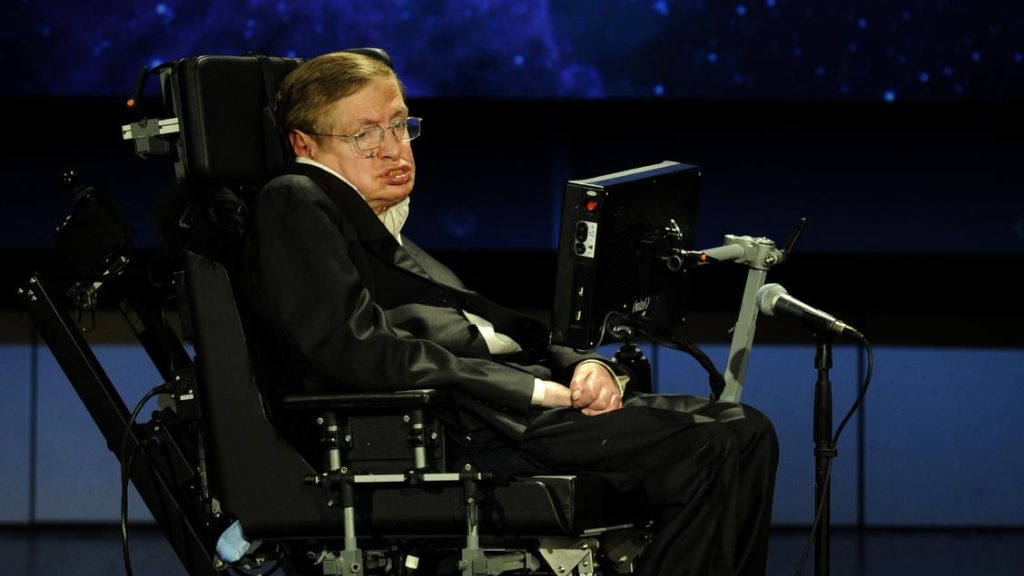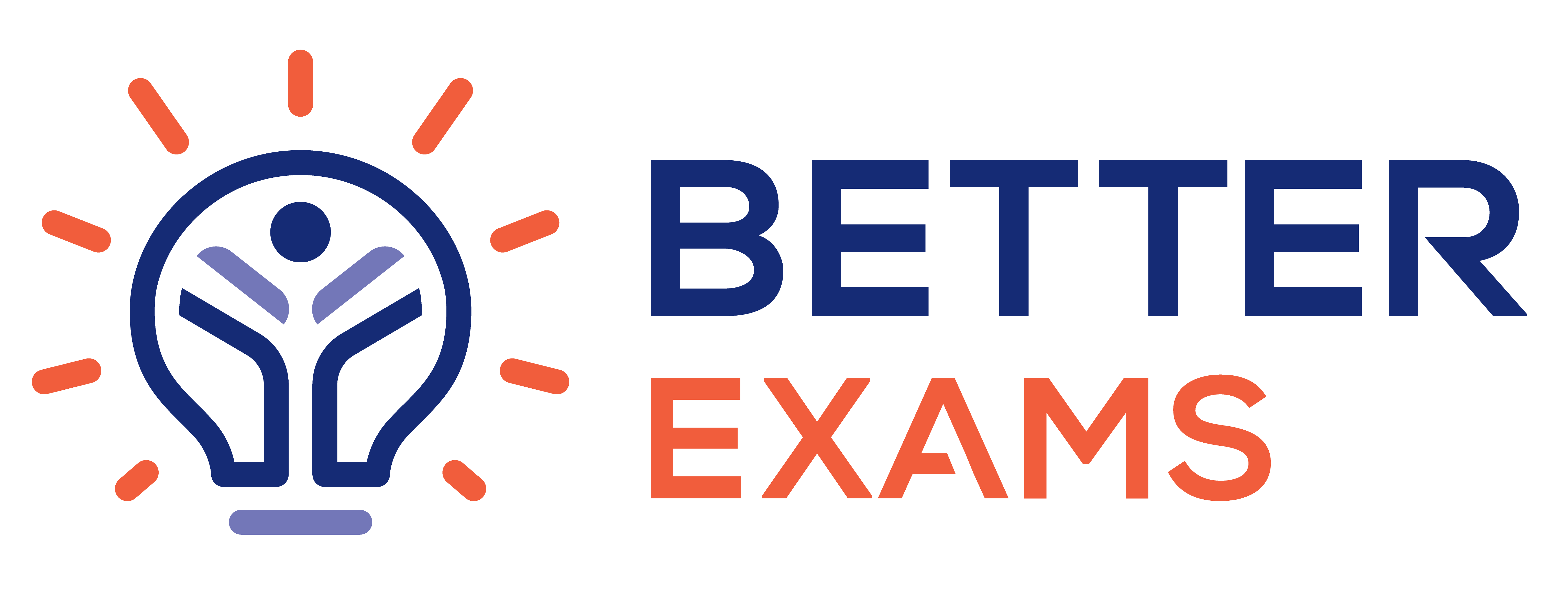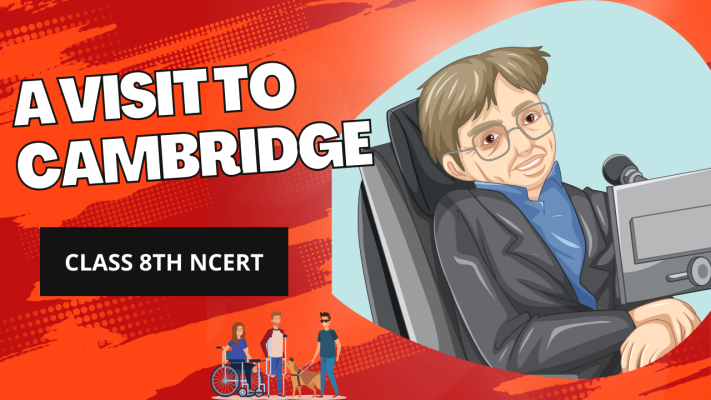We have jotted down A Visit To Cambridge Class 8th NCERT along with A Visit To Cambridge Class 8th Summary and A Visit To Cambridge Class 8th MCQs and RTC to help the students with the lesson so that students of class 8th can solve the questions of the book and know the type of questions asked.
A Visit To Cambridge Class 8th: Summary
In the summary given below, A Visit To Cambridge the author Firdaus Kanga traveled all over the world. He was a journalist and also handicapped but even after this he never let this disability hovers over his interests or career opportunities.
Also, he was an inspiration to the people as he gives a positive aura to all and inspires them to achieve their goals. In this story, the author also shares one of his experiences in England where he describes his visit to Cambridge where he got a chance to interview Stephen Hawking.
He was the successor of Isaac Newton’s chair in the Physics Department at Cambridge University. He also wrote a book, ‘A Brief History of Time, the biggest best-seller of his time.

Stephen Hawking told him that he found people funny who interviews him. He also added that he was out of two options; being brave and letting his disability hovers over him chose the former. He became brave and bold and accepted to show his positive side to all people around him.
At the end of the interview, the narrator of the lesson asked a piece of advice to the physically challenged people so that they can also lead the way for others and show the good side within them.
Stephen Hawking shared with him a beautiful piece of words- To concentrate on what is good in them to become successful.
A Visit To Cambridge Class 8th: NCERT Solutions
Question 1: “Cambridge was my metaphor for England.” To the writer, (i) Cambridge was a reputed university in England. (ii) England was famous for Cambridge. (iii) Cambridge was the real England.
Answer: (ii) England was famous for Cambridge. The author thinks England stands for Cambridge because that’s the first thing that comes to the author’s mind when he thinks about England.
Question 2: The writer phoned Stephen Hawking’s house (i) From the nearest phone booth. (ii) From outside a phone booth. (iii) From inside a phone booth.
Answer:
(ii) From outside a phone booth. Since the author was in a wheelchair, he grabbed the phone from outside.
Question 3: Every time he spoke to the scientist, the writer felt guilty because
(i) He wasn’t sure what he wanted to ask. (ii) He forced the scientist to use his voice synthesizer. (iii) He was face to face with a legend.
Answer: (ii) He forced the scientist to use his voice synthesizer. The Author felt guilty for forcing Hawking to use the synthesizer. To communicate, Hawking had to press the buttons with his thin, weak fingers.
Question 4: “I felt a huge relief…. in the possibilities of my body.” In the given context, the highlighted words refer to (i) Shifting in the wheelchair, turning the wrist. (ii) Standing up, walking. (iii) speaking, writing.
Answer: (i) Shifting in the wheelchair, turning the wrist. Compared to Hawking, the author was able to do much more even though confined to a wheelchair. Hawking couldn’t even move his wrists as the Author could.
A Visit To Cambridge Class 8th: Working with the text
Question 1 A: Did the prospect of meeting Stephen Hawking make the writer nervous? If so, why?
Answer:
Yes, the writer was nervous to meet Stephen Hawking. He looked up to Hawking for having overcome the limitation of his disability and accomplishing so much. He was nervous to meet the role model he had respected throughout his life.
Question 1 B: Did he at the same time feel very excited? If so, why?
Answer: Yes, the writer felt excited too because he had got a half an hour appointment with Stephen Hawking who was an inspiration to the disabled throughout the world. He would be able to talk to him and know the person who had motivated him for so long.
Question 2: Guess the first question put to the scientist by the writer. Answer: Stephen Hawking answered that “I haven’t been brave. I’ve had no choice”. So the writer must have asked, “How have you been brave throughout the problems you face?”
Question 3: Stephen Hawking said, “I’ve had no choice.” Does the writer think there was a choice? What was it?
Yes, the writer does think that Stephen Hawking had a choice. He believed that instead of succumbing to his disability, hawking creatively channeled his little strength into researching and making phenomenal discoveries.
Question 4: “I could feel his anguish.” What could be the anguish?
Answer: His anguish of Hawking could have been that he had so many thoughts to express and yet all he had was the little movement in his finger through which the computer voiced his thoughts. He didn’t have any other way and had to use all his strength to press what he wanted to say again and again.
Question 5: What endeared the scientist to the writer so that he said he was looking at one of the most beautiful men in the world?
Answer: The writer realized he was looking at one of the most beautiful men after Hawking mockingly said yes to the writer’s question if he was disturbing him. The writer came to the realization because it was wonderful how Hawking still had a cheerful persona despite the challenging experiences he faced. It was almost like the light of his soul was shining.
Question 6: Read aloud the description of the beautiful man. Which is the most beautiful sentence in the description?
Answer:
The most beautiful line is “Before you, like a lantern whose walls are worn so thin, you glimpse only the light inside, is the incandescence of the man.”
Question 7 A: ‘If the lantern is the man, what would its ‘walls’ be?
Answer:
If the ‘lantern’ is the man, its ‘walls’ would be the body of the man. The light of the lantern is the soul and the walls are through which the light shines which is the body.
Question 7 B: What is housed within the thin walls?
Answer:
Within the thin walls is the light of the man. The light is referred to Hawking’s eternal soul that is shining through his body or ‘walls’.
Question 7 C: What general conclusion does the writer draw from this comparison?
Answer: The writer draws an important conclusion from the comparison with a lantern. The body is only an accessory in this life. What matters is the eternal soul that shines if one never gives up and does what he/she believes in just like Hawking. Due to his deeds and the way he looked at life, he was one of the most beautiful men according to the writer.
Question 8: What is the scientist’s message for the disabled?
Answer:
The scientist’s message is that the disabled should endeavor for achieving what they are good at. They shouldn’t wait for anyone to empower them or have false hopes of doing something beyond their capacity. According to Hawking, the disabled Olympics is a waste of time.
Question 9: Why does the writer refer to the guitar incident? Which idea does it support?
Answer:
The writer was referring to the guitar incident because he also thought he was trying to do something that was usually done by everyone but it was too difficult for him. He should have done something that was within his caliber. It supports Hawking’s idea of the disabled doing what they are good at.
Question 10: The writer expresses his great gratitude to Stephen Hawking. What is gratitude for?
Answer: The writer’s gratitude is for taking out time and interacting with him despite the efforts he needs to put in. He was able to know the person who was a motivation for many and also learned many beautiful lessons from his thoughts.
Question 11: Complete the following sentences taking their appropriate parts from both the boxes below.
(i) There was his assistant on the line… (ii) You get fed up with people asking you to be brave…
(iii) There he was…… (iv) You look at his eyes which can speak, ...… (v) It doesn’t do much good to know …
- tapping at a little switch in his hand.
- and I told him.
- that there are people
- who have a courage account
- and they are saying something huge and urgent
- trying to find the words on their computer.
- I had come in a wheelchair from India.
- on which you are too lazy to draw a cheque.
- smiling with admiration to see you breathing still.
- it is hard to tell what.
Answer: (i) and I told him I had come in a wheelchair from India. (ii) as if you have a courage account on which you are too lazy to draw a cheque. (iii) tapping at a little switch in his hand trying to find the words on his computer. (iv) and they are saying something huge and urgent, it is hard to tell what. (v) that there are people smiling with admiration to see you breathing still.
A Visit To Cambridge Class 8th: Working with Language
Question 1: Fill in the blanks in the sentences below using the appropriate forms of the words given in the following box.
Guide, succeed, chair, travel, pale, draw, true
(i) I met a from an antique land. (ii) I need a special in mathematics. I can’t count the number of times I have failed in the subject. (iii) The guide called Stephen Hawking a worthy to Is sac Newton. (iv) His other problems into insignificance besides this unforeseen mishap. (v) The meeting was by the youngest member of the board. (vi) Some people say “yours_ when they informally refer to themselves. (vii) I wish it had been a match. We would have been spared the noise of celebrations, at least.
Answer: (i) traveler (ii) guidance (iii) successor (iv) paled (v) chaired (vi) truly (vii) drawn
Question 2: Complete each sentence using the right form of the adjective given in brackets.
(i) My friend has one of the cars on the road. (fast) (ii) This is the story I have ever read. (interesting) (iii) What you are doing now is __than what you did yesterday. (easy) (iv) Ramesh and his wife are both (short) (v) He arrived as usual. Even the chief guest came than he did. (late, early)
Answer: (i) fastest (ii) most interesting (iii) easier (iv) short (v) late, earlier
A Visit To Cambridge Class 8th NCERT
A Visit To Cambridge Class 8th: MCQs and RTC
Read the given passages carefully and answer the questions that follow by choosing the correct alternative:
(1) And suddenly I felt weak all over. Growing up disabled, you get fed up with people asking you to be brave as if you have a courage account on which you are loo lazy to draw a cheque. The only thing that makes you stronger is seeing somebody like you, achieving something huge. Then you know how much is possible and you reach out further than you ever thought you could.
Question 1.
Who is the speaker?
(a) Stephen Hawking
(b) Firdaus Kanga
(c) Mr. Brown
(d) The guide
Answer
Answer: (b) Firdaus Kanga
Question 2.
Where is he at this moment?
(a) Cambridge
(b) Canada
(c) London
(d) U.S.A.
Answer
Answer: (a) Cambridge
Question 3.
With whom was the speaker going to meet?
(a) Mr. Brown
(b) A scientist
(c) A philosopher
(d) Stephen Hawking—a scientist
Answer
Answer: (d) Stephen Hawking—a scientist
Question 4.
When does the speaker feel inspired to do better?
(a) When he meets some dignitaries
(b) When he sees other disabled celebrities
(d) When he is given a good opportunity
(c) When someone praises him
Answer
Answer: (b) When he sees other disabled celebrities
Question 5.
Give the meaning of ‘fed up with.
(a) aware of
(b) wellbeing
(c) not feeling
(d) sick of
Answer
Answer: (d) sick of
(2) “Is there any advice you can give disabled people, something that might help make life better ?” “They should concentrate on what they are good at; I think things like the disabled Olympics are a waste of time.”
Question 1.
What is common between the speaker and the person he is talking to?
(a) Both are politicians
(b) Both are Indians
(c) Both are handicapped
(d) Both are Cambridge graduate
Answer
Answer: (c) Both are handicapped
Question 2.
Whom did the speaker go to see?
(a) Mr. Brown—a politician
(b) Mr. Hawking—a lawyer
(c) Stephen Hawking—a famous scientist
(d) Stephen—a doctor
Answer
Answer: (c) Stephen Hawking—a famous scientist
Question 3.
What question did the speaker ask?
(a) To give a message to all
(b) To give a message to the handicapped
(c) To give something to his friend
(d) None of these
Answer
Answer: (b) To give a message to the handicapped
Question 4.
What was a waste of time according to Stephen Hawking?
(a) Organizing Olympic games for the disabled
(b) Not organising Olympic games for the disabled
(c) Organizing Olympic games for all
(d) None of these
Answer
Answer: (a) Organizing Olympic games for the disabled
Question 5.
Write the verb of ‘advice’.
(a) advised
(b) to take care
(c) suggest
(d) advise
Answer
Answer: (d) advise
(3) Every time I shifted in my chair or turned my wrist to watch the time—I wanted to make every one of our thirty minutes count—1 felt a huge relief and exhilaration in the possibilities of my body. How little it mattered then that I would never walk, or even stand. I told him how he had been an inspiration beyond cliche for me, and surely, for others—did that thought help him?
Question 1.
Who is the speaker?
(a) Firdaus Kanga
(b) Mr. Brown
(c) Stephen Hawking
(d) A guide
Answer
Answer: (a) Firdaus Kanga
Question 2.
Who is he interviewing?
(a) Mr. Brown—a politician
(b) Stephen Hawking—a scientist
(c) A Philosopher
(d) A doctor
Answer
Answer: (b) Stephen Hawking—a scientist
Question 3.
What gave him relief?
(a) He was more intelligent
(b) He was less paralyzed than the scientist
(c) He could write well
(d) None of these
Answer
Answer: (b) He was less paralyzed than the scientist
Question 4.
Why was the speaker watching the time?
(a) He had to go somewhere
(b) He had to meet the doctor
(c) He had to conclude the interview within the allotted time
(d) He was feeling bored
Answer
Answer: (c) He had to conclude the interview within the allotted time
Question 5.
Give the opposite of ‘huge’
(a) big
(b) vast
(c) high
(d) small
Answer
Answer: (d) small
(4) An hour later, we were ready to leave. I didn’t know what to do. I could not kiss him or cry. I touched his shoulder and wheeled out into the summer evening. I looked back; and I knew he was waving, though he wasn’t. Watching him, an embodiment of my bravest self, the one I was moving towards, the one I had believed in for so many years, alone, I knew that my journey was over. For now.
Question 1.
Name the lesson.
(a) The Summit Within
(b) A Visit to Cambridge
(c) This is Jody’s Fawn
(d) The Great Stone Face-I
Answer
Answer: (b) A Visit to Cambridge
Question 2.
Who is ‘I’ in the above lesson?
(a) Stephen Hawking
(b) Firdaus Kanga
(c) Mr. Brown
(d) Mr. R. Stephen
Answer
Answer: (c) Mr. Brown
Question 3.
What were the author’s feelings when he had to leave?
(a) He wanted to leave
(b) He wanted to talk to Stephen Hawking
(c) He felt veiy attached to Stephen Hawking
(d) None of these
Answer
Answer: (d) None of these
Question 4.
How did he bid him good bye?
(a) By shaking hands with him
(b) By waving his hand
(c) By touching his hand
(d) By touching his shoulder
Answer
Answer: (c) By touching his hand
Question 5.
What did he feel when he looked back?
(a) Stephen Hawking shook hands with him
(b) Stephen Hawking touched his shoulders
(c) Stephen Hawking was also bidding him goodbye
(d) None of these
Answer
Answer: (a) Stephen Hawking shook hands with him
Question 6.
Which word in the passage means ‘symbol’?
(a) embodiment
(b) wheeled
(c) bravest
(d) waving
Answer
Answer: (a) embodiment
Conclusion
We have jotted down A Visit To Cambridge Class 8th NCERT along with A Visit To Cambridge Class 8th Summary and A Visit To Cambridge Class 8th MCQs and RTC to help the students with the lesson so that students of class 8th can solve the questions of the book and know the type of questions asked.
Related Articles

